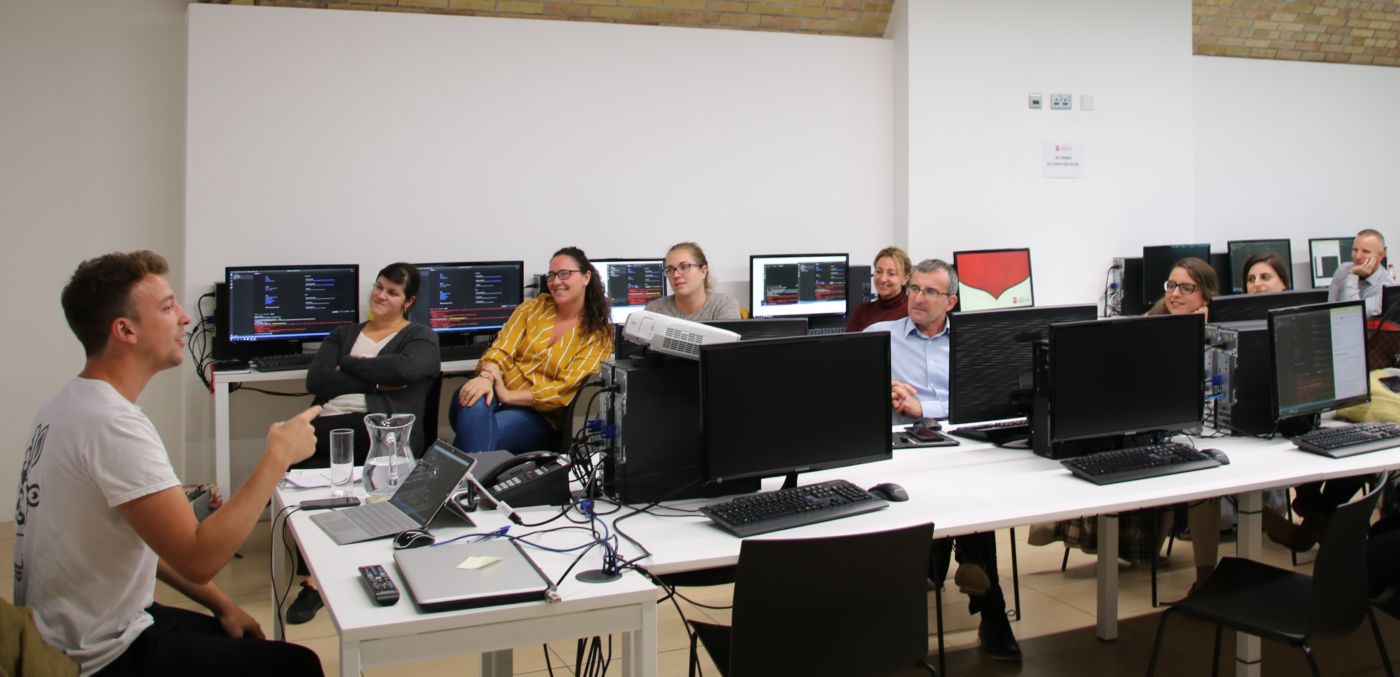Gibraltar’s reputation as a leading centre for the regulation of distributed ledger technologies is starting to gain traction worldwide. As its profile grows, it is rather fitting that the University of Gibraltar is on a mission to enhance the skills of Gibraltar’s professionals within innovative new technologies such as blockchain. At the helm of this mission is the University’s Director of Professional Development and Continuing Education and the Chair of its New Technologies in Education Key Advisory group, Nadine Collado.
Nadine has been with the University since the very start. She has seen it develop from concept to campus and as the institution enters its fifth year, has developed an understanding of the skills needed across Gibraltar’s varied business sectors. Fintech.gi met with her to find out more about the University’s commitment to new technology education and how she is playing the long game when it comes to blockchain.
Please tell me about your role at the University?
“Firstly, thank you very much for the interview opportunity. I’m the Director of Professional Development and Continuing Education at the University of Gibraltar. In the main, I oversee the delivery of the University’s courses aimed at working professionals and those wishing to develop their careers. These tend to be professional body qualifications or tailor-made, professionally-focused courses such as diplomas or certificates of competence in various sectors or specialisms including law, tax, sport, business skills such as marketing, and more recently, we have been offering development opportunities in new technologies such as blockchain.”
Why the focus on new technologies?
“Part of my role is overseeing of the University’s six key advisory groups. These groups were set up early on in the University’s development and offer us a ‘direct line’ into Gibraltar’s diverse business sectors. They serve as important sounding boards and a way to gauge the need for training and industry-specific qualifications. We started to look into offering courses within the area of new technology and blockchain as a result of my work as Chair of the University’s New Technology in Education Group. Through the work the group was doing, we identified a need for more knowledge and skills in this area amongst Gibraltar’s professionals.”
New Technologies in Education by Fintech.gi
What are some of the challenges you’re facing?
“One of the reasons for setting up the new technologies advisory group was to scope out the demand for professional courses within areas such as blockchain – we wanted to enhance and develop expertise in Gibraltar. Look at it like this; on the one hand, you have Gibraltar positioning itself as a leader in jurisdictions for DLT regulatory framework. On the other, you have many important blue-chip and fintech companies setting up an operation here on the Rock. The challenge is bringing these two aspects together to ensure Gibraltar has a domestic workforce that’s skilled and aware of what technologies arise in blockchain, for example.”
Do you think there has been a level of ‘blockchain drain’ in Gibraltar?
“I think there’s a lot of hype with regards to blockchain, yes. I think the word has been completely overused, it’s become a buzzword, in my opinion. From an educational point of view, there have been so many blockchain workshops, blockchain breakfast seminars and one-off blockchain presentations here in Gibraltar that I think everybody thinks they know enough about the subject matter. What the University is now on a mission to do is build-on that basic understanding and convert it into a deeper knowledge of the technology and at the same time provide the skills to enable individuals and firms to start applying it to real-business scenarios.”
 Are locally-based companies starting to understand the potential of new technologies?
Are locally-based companies starting to understand the potential of new technologies?
“Again, I think there’s an awareness, but we have some way to go. It is possible to compare the technology to the very early days of the internet in the 90s – this is such a rapid and evolving area that in the space of a year or more, then there’ll be no other choice but to learn about it and to implement solutions, and not just in the financial sector. Blockchain can be applied to different sectors; financial sectors, administrative sectors, health and educational sectors.”
“As an example, the University is exploring how the technology can be used to enhance the integrity of academic transcripts, ensuring they are verifiable documents which cannot be changed or altered, and have a long life in terms of storage capacity; the plan being to hold the transcripts via a blockchain solution, smart contract solution.”
How do you hope to start changing the mindset?
“I think the mindset is starting to change. What we’re trying to do at the University is to create more than cursory awareness, more than just understanding, and provide locals with the skills they will need to benefit from any increased job opportunities in the sector. I think it is right and proper that the University provide education in terms of the different areas within the space. An example of this is our Professional Certificate of Competence in Blockchain and Smart Contracts course – it has been so well supported by Gibraltar’s businesses that it’s going to be offered again in February and March next year. The course is delivered by two experts in the field so delegates get up-to-the-minute insights which draw on case studies and real-life applications of the technology. Up until now, I feel the technology has been too conceptual for many people, this course addresses that issue and makes it ‘real’, so that those completing the course are able to translate knowledge into action that can help them solve workplace issues”
How does Gibraltar fit within the global fintech scene?
“In my opinion, we are becoming a hub for this type of business – firms are attracted by the regulation that Gibraltar is offering. From a University point of view, we are building networks and links across the world that aim to move things forward. The University recently signed an MOU with a leading blockchain technology and application education institution in China, Huobi University. We have already been offering learning opportunities within the blockchain, DLT and Fintech space for a number of months so for us, this partnership is about advancing research in the area. The University now forms part of a global educational movement in these technologies, it’s an exciting time to get into this technology – the sector is gaining momentum and credibility.”
Professional Certificate of Competence in Blockchain & Smart Contracts





